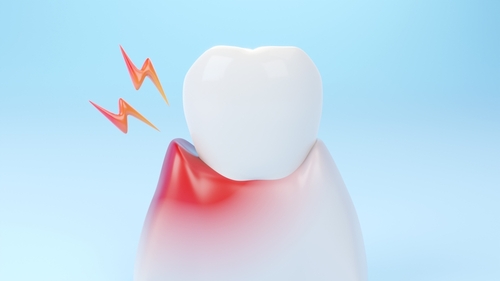Are you struggling with severe tooth pain? Maybe you can brush it off with a few painkillers, but the problem might be more serious than you think.
Some people believe tooth pain is normal. You experience it when you chew on something too hard or have a cavity. But in some cases, it requires immediate medical attention.
Here’s a brief explanation of what it implies and why you should get it treated ASAP.

What are the Warning Signs?
When you experience unbearable tooth pain, it indicates you are experiencing something more than a cavity. In most cases, it implies you have a problem with tooth growth or disease and infection.
Some of the typical symptoms of tooth pain include throbbing, sharp shooting pain, soreness, bleeding gums, and sometimes swelling. But a few of the warning signs that indicate it’s a serious case are as follows:
- Jaw discomfort or misalignment
- Headache or fatigue
- Sweating or chills
- Feverish sensations
- Diarrhea or vomiting
- Dehydration
The Risks of Severe Tooth Pain
Many suggest visiting the dentist when you experience symptoms of severe tooth pain. This way, you can provide tooth pain relief and address the problem before the condition worsens.
Here are a few of the risks you might encounter if you let it go untreated:
Tooth Loss
One of the common outcomes you can experience is tooth loss. It usually occurs when the tooth becomes too weak or decayed. As a result, they break or fall off.
Bone Infection
If you give a bacterial infection enough time to spread, it could affect the bone surrounding it. And so, it results in pain and other diseases in your bones, such as the jaw.

Irritation
Your sinuses are close to your teeth, so issues with your tooth can spread into a sinus infection. While it’s uncommon, you may want to look out for it to ensure it doesn’t develop into a life-threatening issue.
Serious Dental Complications
The primary risk when leaving unbearable tooth pain untreated are dental issues. It includes problems that involve the blood, tongue, and even brain.
Treatment Options to Consider
Whether it’s wisdom tooth pain or severe cases, consider the following methods to alleviate discomfort:
Get Professional Dental Treatment
If your dentist says the condition is more serious than it looks, you want to consider professional dental treatments. It includes getting implants, fillings, root canals, and others.
Some may even suggest getting surgery to address the pain. If so, be sure to look up the top dentist in my area for the best results.
Use Pain Relievers
The level of pain you feel usually determines what type of treatment you should get. Pain relievers are helpful but may not work in some cases. Note that you should consume it as prescribed.
Rinse With Saltwater
If you’re looking for home remedies for tooth pain, the most recommended method is rinsing with saltwater. It effectively disinfects your mouth, reduces inflammation, and heals oral wounds.
Practice Proper Dental Hygiene

There are instances when severe tooth pain reduces after improving dental care. The more you practice better dental hygiene, the more it reduces bacteria and protects your teeth.
Address Severe Tooth Pain to Avoid Oral Damage
Severe tooth pain can lead to serious damage if you leave it untreated. The risks range from tooth loss to life-threatening conditions. You want to be sure you know the symptoms and solutions to prevent it from getting worse.
Check out our blog to learn more about it!





